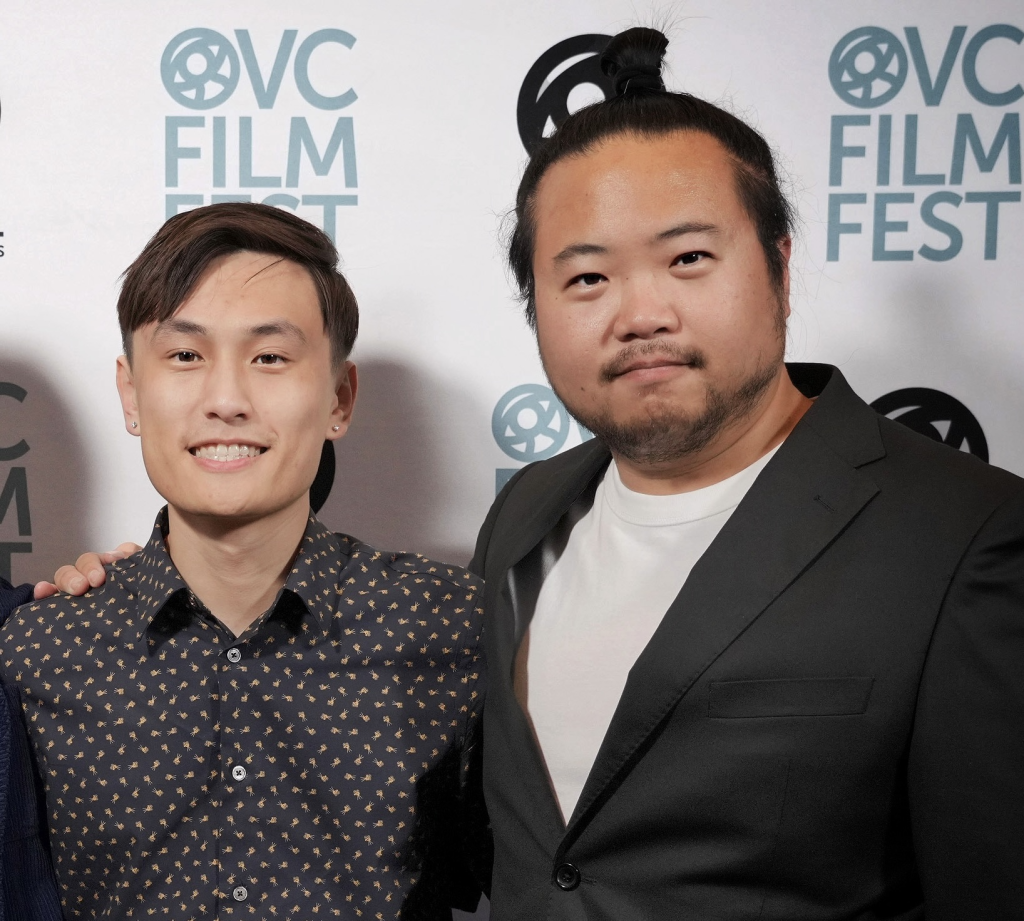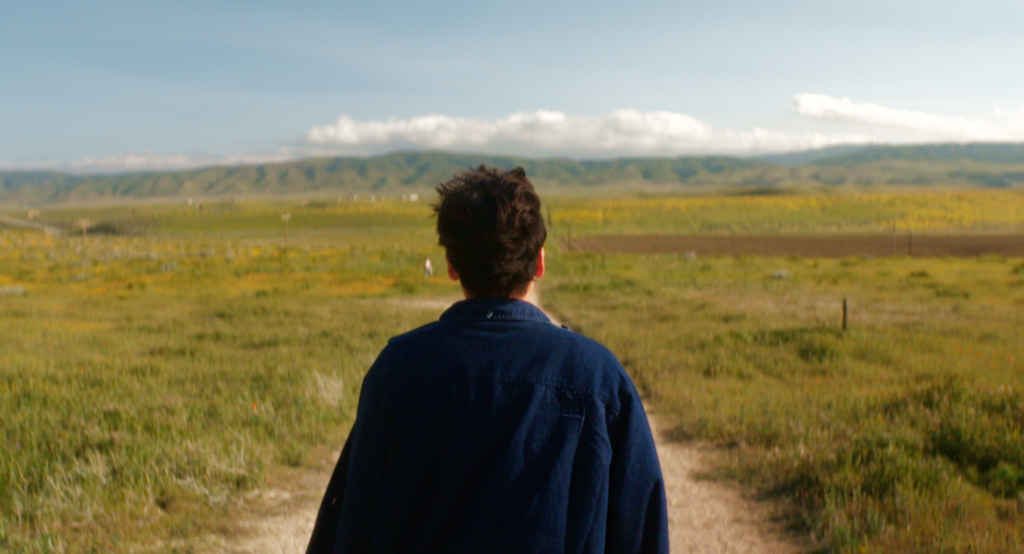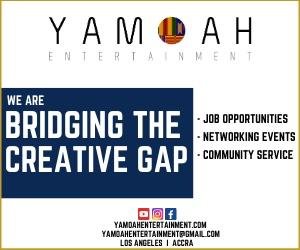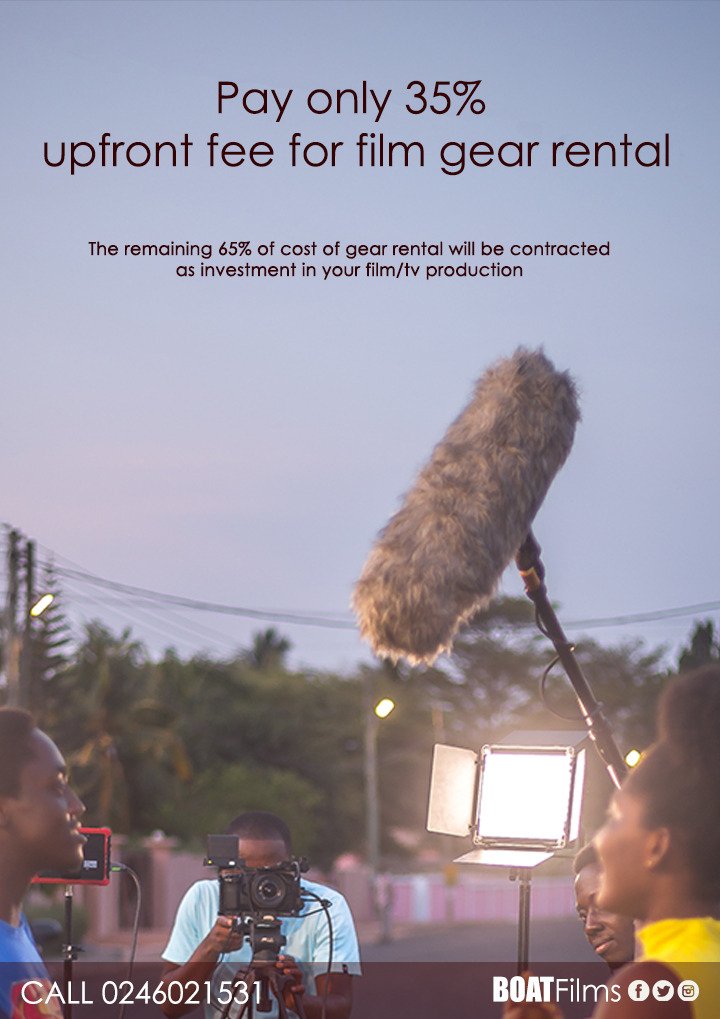Interviews
A Journey of Identity and Resistance in ‘Anywhere the Wind Blows’, Filmmakers Jay Liu and Dalton Zongshian Lu share it all with us.
Published
2 years agoon
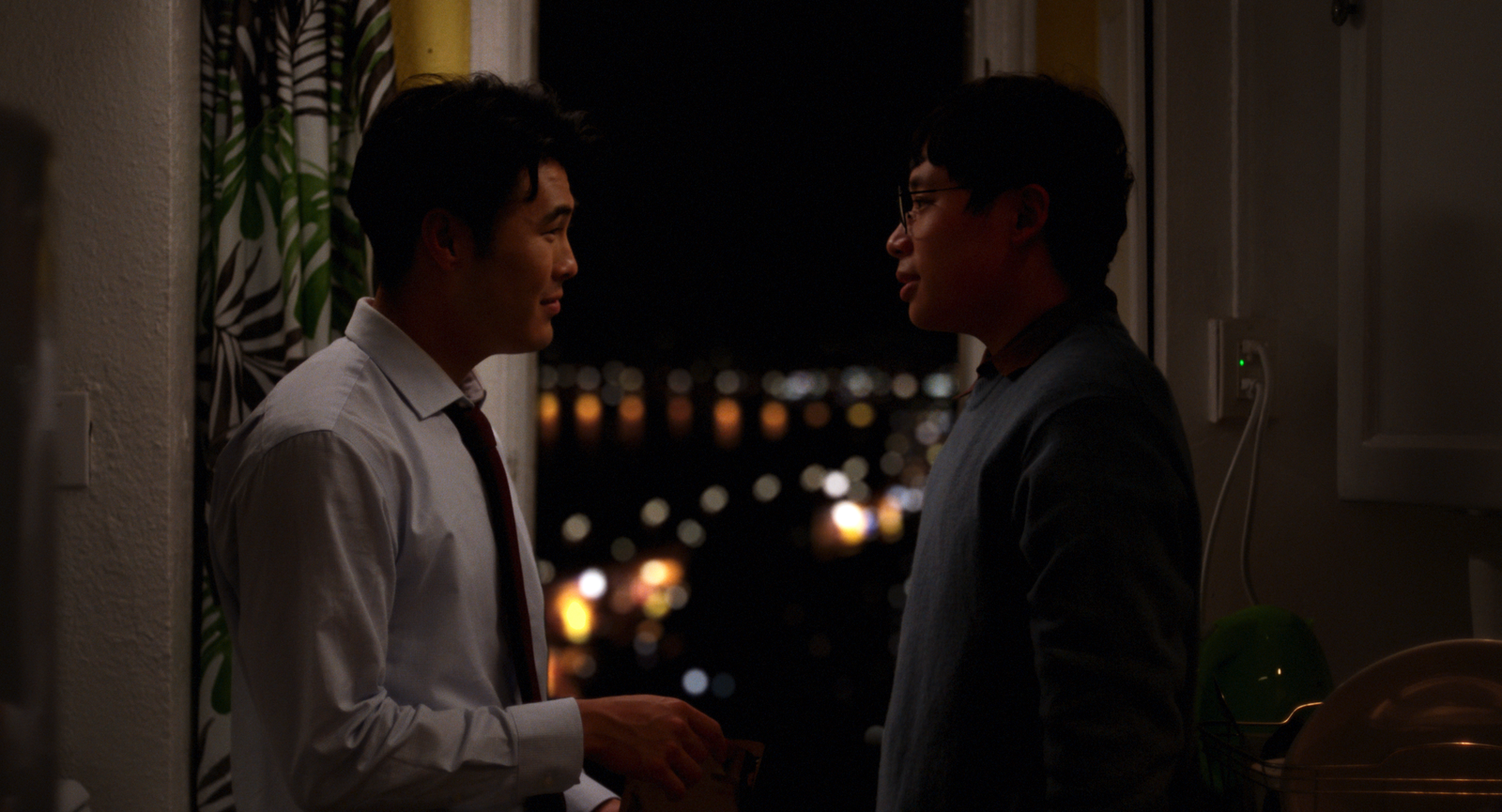
The creative short film “Anywhere the Wind Blows” tells a story, inspired by the Hong Kong protests and infused with a queer romance, that delves into the complex lives of self-exiled individuals. Through the lens of Jay Liu‘s personal experiences and Dalton Zongshian Lu‘s deep political insights, the film offers a unique perspective on the intersectionality of identity, politics, and human emotion.
This interview attempts to explore the inspirations, challenges and the balance that they had to strike between personal and political beliefs whilst making this film. We get to not just catch a glimpse into their minds, but we see where their hearts are in this creative piece.
1. Can you share with us what inspired the narrative of “Anywhere the Wind Blows”?
JL: I came up with the idea of “Anywhere the Wind Blows” when I was having dinner with a high school friend from Hong Kong in Los Angeles. This was all the way back in 2021. This friend has chosen to permanently live abroad in self-exile because of participating in the 2019 Hong Kong protests. I immediately thought this scenario has great cinematic potential, as regrettable as that is. I combined this background with a queer romance to maximize its emotion and power.
DL: What drew me to Jay’s vision was its profound political and personal resonance. I was in Hong Kong during the Umbrella Revolution in 2014, witnessing the determination of the protesters. As someone from Taiwan, I also see a direct connection to my country’s own political struggles. This film not only captures a powerful narrative but also reflects real, ongoing issues. My goal has been to ensure that we tell this story with the authenticity and depth it deserves, bridging personal experiences with broader political themes to truly engage our audience.
2.Can you share more about your journey as a queer filmmaker from Hong Kong and how it has impacted your work?
JL: Intersectionality wasn’t an important concept to me until 2019. I used to avoid my Asianness because I grew up living in the racial majority and didn’t find it noteworthy. Instead, it was queerness that informed my perspective of the world. After 2019, the HongKonger part of my identity became critically important and almost like a lifelong mission. And I realized combining queerness and my origins makes for more specific work that communicates more globally. Nowadays, both are simply themes that haunt me wherever I go. Even when I’m working on completely unrelated projects, they find a way to creep up. I think there is no “Jay Liu” without either of those elements.
3. Why the title “Anywhere the Wind Blows” and what is its significance to the story?
JL: Ironically, the genesis of this title came from a famous Mao Zedong quote that generally translates to “a single spark can set a field ablaze.” It was a quite popular phrase during the 2019 protests. When writing the final scene of the film, I thought about how Alex’s ideas, even if tiny and solitary, can travel to any corner of the world, and how as long as they do, there is hope in the world. So the title is about the power of these hopes and dreams. That also applies to the HongKonger identity and the newfound HongKonger global diaspora. So in some ways, it is a word of encouragement.
DL: Another source of inspiration was a song called “The Shape of Wind” by a famous HongKonger singer based in Taiwan. It’s also a song about the newfound diaspora and migration stories. Even though we couldn’t get the rights to use the song, it still left a deep influence on our film, especially the ending. The winds represent the diaspora, carrying ideas and resilience to new places, highlighting both the struggles and the strength of those who move forward.
JL: Right, I completely forgot about the song! It’s very popular and sort of a de facto anthem about emigration in the last few years. I’m very pop culture-aware so I use a lot of pop culture elements in my work, including the Chinese title of this film, which is another famous pop song.
4. You tackle both personal and political themes with this film. Share with us how you approached this to keep it balanced.
JL: To me, they are one and the same. Or I should say they are inseparable. The personal is the political in the film, and the political is the personal. I was never interested in conveying or arguing geopolitics in the film – I feel like both HongKongers and the world population have had ample access to those things through news headlines and media discussions, and they can judge for themselves. The unique opportunity of making this narrative film was always more about shedding light on the personal lives of these overseas HongKongers. But of course, because of their jobs and their predicaments, their personal lives are also by nature political. So the two things are intertwined, but there is more emphasis on the personal, because I believe that is what narrative cinema uniquely allows for.
DL: Balancing personal and political themes in the film was crucial. We approached it by focusing on the human stories at the core of these political circumstances. As a producer, my aim was to ensure that the political backdrop enriched the personal narratives rather than overshadowing them. We wanted to highlight the everyday experiences and emotional journeys of our characters, which naturally reflect their political realities. By emphasizing the personal, we make the political context more relatable and impactful, allowing audiences to connect with the characters on a deeper level.
5. How important was it for you to capture the emotional complexity of Alex’s character, given his background, experiences and his queerness?
JL: Obviously, that is super important to me, and thank you for highlighting that as well. Political refugees and activists do incredibly important things, so of course it was important to me to respect and honor them. But I feel like the ultimate form of respect is to show them as real people with flesh and blood, not as some vague concepts of saints and martyrs. So it was my goal to show that these activists are people as well, and they have regrets, demons, and other regular thoughts like you and me. In a more conservative place like Hong Kong, the most taboo of these thoughts is probably queer desire, so it was very important to me to probe into that as well, to touch somewhere “nasty” and “perverse,” so I can really go deep into their hearts and fully realize them as human characters.
DL: Capturing Alex’s emotional complexity was quite the adventure! When Jay and I talked about the character, he downplayed it by claiming it was based on his “friends,” but it became clear Alex is a lot like Jay himself. The little quirks and habits – they’re all him. Even the apartment we shot in was somehow modeled after Jay’s old place! Balancing the serious themes with these personal touches makes Alex real and relatable, and maybe a bit humorous if you know Jay. This approach helps the audience connect with Alex on a deeper level, beyond his circumstances.
JL: I think the resemblance to myself is something that naturally came out of the long filmmaking process and also a reflection of my lack of experience in life so far. Hopefully I can tell stories other than mine in the future!
6.What were some of the challenges you faced while making this film and how did you overcome them?
DL: Funding was definitely a major hurdle. I remember the countless hours we spent strategizing and reaching out to potential backers. The HongKonger community played a big part in this, rallying behind us when they saw Jay’s determination. So, kudos to Jay.
JL: Thanks, and I agree. Despite the presence of stunt sequences and dozens of extras, to me, the biggest challenge of making the film is still funding during pre-production. Like many other USC thesis films, our film was mostly crowdfunded on Kickstarter, and it was an incredibly tough process. For an introvert like me, shamelessly asking people for money – especially not just a few dollars, but for hundreds – was grueling. But I had faith in the goal from the start, and thanks to the help of overseas HongKonger associations, we pulled through. Thanks to Dalton and our other producer Allegro as well.
The other part has been finding the life of the film post-completion. Not enough people talk about how grueling the festivals process is for indie filmmakers without connections, and the onslaught of rejections, albeit normal, isn’t easy to cope with. I’m very lucky to have shown my film at a few notable places, and I hope there are more to come. So ironically, the biggest challenges have been before and after making the film.
7.What went into the casting choices, particularly for the roles of Alex and Brandon?
JL: From the start, I knew casting these two characters, who needed to be Cantonese-speaking, Asian, young, male, willing to play gay, et cetera, was going to be incredibly difficult in Los Angeles, especially because they needed to be fluent with no accent. Even before pre-production began, I had begun scouting possible actors in online databases for the roles, and Ray Kam was one of the actors I looked into. I thought he was perfect for Brandon in every way except for his accent. I thought back about some incredible performances I had seen recently, such as Tang Wei in Decision to Leave and Tony Leung in Lust, Caution, and how they had thick accents that ultimately didn’t matter for their performances. So even though I made Ray audition twice over a few months – poor Ray – I kind of always knew it was going to be him, and I’m very grateful for his participation.
For the role of Alex, I knew it was going to be even more difficult. There is absolutely zero way Alex can have a foreign accent. My casting director and I were deep into our search until we luckily stumbled onto Glen Wong, who was and still is an acting student at USC’s drama school. He fit the part in every way except in age, so we aged the role down for him. Being from Hong Kong, he was also very perceptive and informed about all the themes of the story. It was his first real screen role, but I think he did an incredible job. Both Glen and Ray really existed in the right place at the right time, so I am just really lucky and grateful for them.
8.What was your process for creating the varied tone of the film, from intimate moments to larger-scale dramatic scenes?
JL: I think, to me, the most important thing was always to remain personal. The images had to come from my heart. That’s why I worked with my DP to chase images that would be extreme, deeply felt, and visceral, either through high contrast or lens choices. Viscerality was always of the highest concern for me.
DL: Creating the varied tone of the film all boiled down to vulnerability. Alex’s journey is about him building walls to keep people out, but those little cracks where his vulnerability shows through make him relatable and human. In the intimate scenes, we really focused on capturing those small moments when Alex lets his guard down. It’s in these tiny cracks that you see the real him. Then, when we move to the larger, dramatic scenes, they’re still connected by this thread of vulnerability. This continuity between the smaller and larger scenes really brings out Alex’s emotional depth and makes his story compelling. It’s this blend of personal and political, quiet and loud, that makes the film work.
9. The film touches on themes of political persecution and queer desire. How did you intertwine these elements to create a cohesive narrative without making this film a propaganda piece for either?
JL: That’s actually a wonderful question I’ve been thinking a lot about, thank you very much. Even “whether propaganda is inherently bad or not” is something I’ve been questioning. My film is about certain issues that a lot of people, including myself, have very strong and principled opinions about. It was very important to me to maintain my personal beliefs and introduce ample space for thought and reflection. I think ultimately my approach was, again, narrowing everything through the personal and even humanistic, as much as I’m aware that some artists use that as an excuse to get away from taking sides. Every part of “Anywhere the Wind Blows” was collected and assembled from different stories that originate from very different people in my life. These people fall on different, ambiguous, complicated spots on the political spectrum. As long as these stories were filtered through me, and as long as I knew my voice wasn’t corrupted, I had faith that I wouldn’t be producing propaganda for either side.
DL: When Jay first showed me the script, I remember asking him, “How political do you want to go, and how do you want to approach it?” This film had the potential to be very political or not political at all. Justin mentioned he wanted to make it not political and focus on Alex’s personal journey, which made sense to me. (JL: I don’t remember this conversation at all!) It’s not about creating a propaganda piece for the government or for the Hongkongers in the diaspora. It’s about telling a human story, a real person’s story, that everyone on both sides can connect with. We want to show Alex’s personal experiences and struggles in a way that highlights his humanity, allowing viewers to see parts of themselves in his journey, regardless of their political stance. This approach helps the film resonate on a deeper level, beyond political divides.
10. What would you like for viewers to take away from this film?
JL: I hope they can have hope that there are some incredibly courageous young people doing seismic work for the world, but also acknowledgement that these people have made huge sacrifices for the rest of us. These sacrifices not only include situational and legal things, but also personal and emotional stakes. And, of course, that there are queer members of the HongKonger community as well!
DL: For me, the takeaway I wish people to have from this film is a sense of memory. The world is changing so fast, and most people forget what happened last week, no matter how big the issue is. Yet, there are still groups of people like us clinging to the past, wanting to share what we felt and what people have been through. Although these events are old, they are still happening in many ways today. I want viewers to realize how these past events connect to our present and future. It’s about connecting the dots to help us build a better future and support those who made sacrifices. This film serves as a reminder that even though the world moves on quickly, the stories and struggles of people should not be forgotten. It’s about fostering a deeper understanding and empathy for those who continue to fight for a better world.
11. Lastly, what other themes or stories are you interested in telling in your future projects?
JL: After making this film, I’ve realized that I have always been making films about intimacy, whether in this geopolitical context or other contexts. I am interested in intimacy because it is, by nature, close to the heart and, thus I believe, affecting to viewers. A few ideas have merged in my head so I am now developing an unintended feature version of “Anywhere the Wind Blows.” I’ve also been working on a short film idea that is about intimacy in the world of gay OnlyFans content creators – again, about similar themes of forbidden emotional desires, but in another arena.
I’ve also been working on a project about my diaspora that is kind of a spin-off from “Anywhere the Wind Blows.” It will be a short documentary about a rare, unique prop you saw in the film, and the documentary will explore changing trends of Hong Kong culture in the diaspora through the vantage point of that prop and its owner. I think, in the future, as I settle down in a still undetermined location (either the US, UK, or Canada), themes of my diaspora and community will inevitably follow me. And I will inevitably be combining these concerns with my interest in intimacy for works that will hopefully be uniquely mine.
DL: My themes focus on historical context and personal experiences, blending past and present to highlight ongoing impacts on our lives and identities. One of my future projects is about an answering machine that connected Taiwanese Americans to Taiwan during the martial law period in the 1970s, playing a crucial role in Taiwan’s transition to democracy. This project underscores how small, seemingly mundane devices can have significant historical importance.
JL: That’s why it was so important for me to recruit collaborators like Dalton, who know and care about human rights issues, especially in the Chinese-speaking world.
“Anywhere the Wind Blows” is a film that would certainly resonate with audiences. This is a testament to the collaborative efforts and commitments of director Jay Liu and producer Dalton Zongshian Lu. Through this film and other future projects, they are committed to exploring themes of intimacy, identity and political struggles. Their dedication to authentic storytelling shines through, reflecting both the personal sacrifices and broader societal impacts faced by those living.
By weaving together historical contexts and deeply personal narratives, Liu and Lu not only preserve important cultural memories but also inspire a deeper understanding and empathy for ongoing struggles. Their collaborative vision promises to keep pushing boundaries, ensuring that stories like Alex’s continue to find a voice in the world of cinema.
“Anywhere the Wind Blows” is a short film that stands out and hopefully gets seen by as many people as possible.
Second on my list of addictions is Movies.. the only thing I could possibly love more is my Dearest Waakye lol. Nothing else does a better job of reminding me that ANYTHING is possible with the right amount of effort. I have great eye for details and flaws in scripts. Shallow scripts bore me. I am an avid reader. Your everyday Mr Nice guy. Always the last to speak in a room full of smart people. Half Human, half Martian but full MOVIE FREAK.

